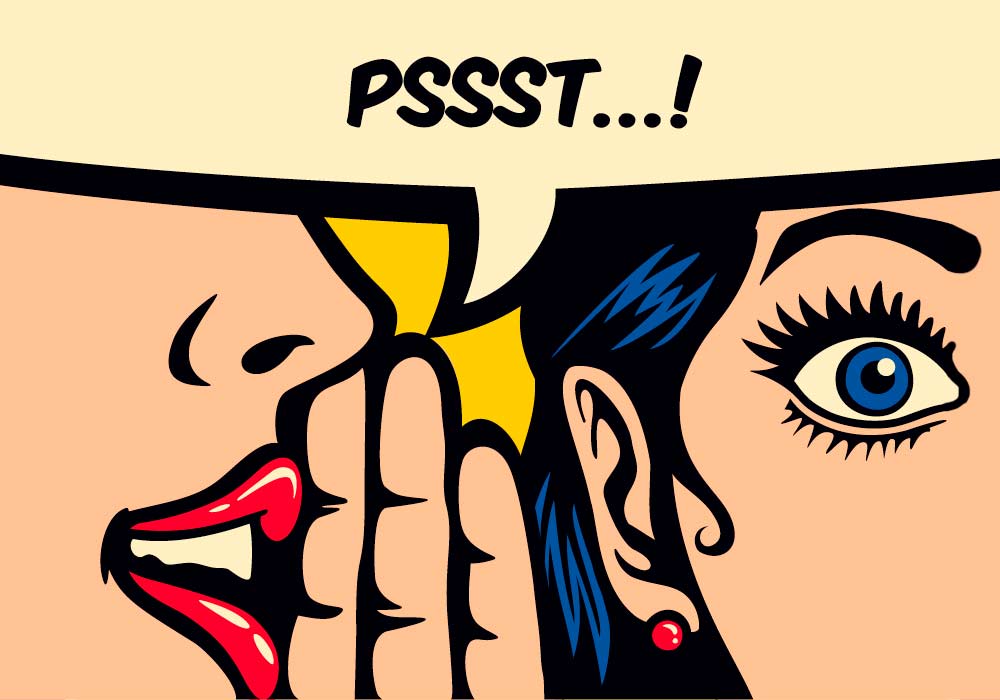
by Anastasia Chrysostom | Jan 27, 2020 | Uncategorized
by Jennifer Hama, LPC, CPCS
The easiest yet hardest words to say.
I was playing with my two year old and noticed her repeat the same two words over and over. I realized that most parents, including myself, frequently get annoyed with these two words but once the annoyed feeling left I realized why it annoyed me so much. These are two words that I don’t use enough.
In fact, I actively avoid using them. I have also been denied the ability to use these words both by society and individual people. That needs to stop and we need to use these words more often.
What are these wise words spoken so easily by the smallest of humans: help and no.
These are one syllable words that are easier to pronounce than Worcestershire, yet we hardly say them. Why is that? Here are some thoughts:
Help: 
Often we have internalized the belief that asking for help means something about who a person is, ie asking for help means that somehow “I’m weak, not good enough,” etc. This is called a shame based belief because it characterizes the problem as something about who you are instead of a skill or a weakness.
There are two consequences of not asking for help: first is that it reinforces the shame based belief. Second: it limits growth potential. By pushing through and continuing to ask for help even when afraid, means that the old limiting shame based beliefs have to change and growth as a person can continue.
 No:
No:
Many people believe that when we say no to others it’s “mean,” “blocks your blessings,” or makes you “ungrateful.” When we believe these, we fear saying no. Difficulty saying no often leads to an overfilled plate, an unbalanced life, and resentment.
We have limited time and energy and if we are not actively choosing (ie saying no) the things/events/people/behaviors in our lives, those things will drain our time and energy and we will have nothing left for the things we want to spend our time and energy on. This is called Parkinson’s Law. Be choosy in what you say yes to because you are saying no to something else.
You have the right and responsibility to ask for help and to say no.
Not only is saying no or asking for help a right you have. It is a responsibility. If you choose not to exercise your right, you end up being resentful in your life and harming the relationships that you value. I realize I sound like negative Nancy and Debbie downer had a child, but it is imperative that we begin to create a healthy environment not only for ourselves but for our loved ones and these simple (but hard) words can make a huge impact.
Jennifer Hama, LPC, CPCS I have a core belief that a sense of humor is essential to living a fulfilling life. And I like to recognize mine. Regularly. I hate laundry and psychobabble, but I love uncensored real talk. It’s necessary for you to know this. Also, I have a white board that I go everywhere with. While it’s entertaining to watch me roll it around the office while trying not to trip, it’s also a powerful therapy tool, helping you visualize your struggles and brainstorm solutions. I don’t do “therapy speak, ” I shoot straight, and believe in giving you practical tools to help you change your life.oes here
Learn more about Jennifer and CBT, Here
Follow us on Facebook, Instagram and Pinterest to see more advice from our therapists!
Facebook InstagramPinterest
Side effects: They may cause your burps to smell like raspberries. Bottom Line: There is no evidence that raspberry ketones cause weight loss in humans, and the rat studies showing it to work used massive doses. Green Coffee Bean Extract. They contain two substances believed to help with weight loss, caffeine and chlorogenic acid.

by Anastasia Chrysostom | Jan 16, 2020 | Uncategorized
by Nyambura Kihato, M.Ed, MA, LPC, CCTP
I once heard Oprah talk about how she deals with being a successful Black business woman in a white man’s world. She said she often walks into a meeting to find she is not just the only woman, she is the sole person of color. Some of the people she meets can be intimidating or even outright hostile.
In times like these, she calls to mind all the strong black women who came before her, like Harriet Tubman, Sojourner Truth, Maya Angelou. She reflects on the hardships they encountered and how they impacted the world in such powerful ways while remaining true to themselves.
Oprah describes how she invites these powerful women to walk into the boardroom with with her, to sit next to her at the table, to help her respond to the environment and the people with authenticity, empathy, and conviction, and to remind her to be true to herself. This helps her find her own power, especially in unfriendly environments.
Courage to be you
Who gives you strength and courage to show up and be yourself? Who do you walk with into that work meeting where you are giving an important presentation? Who sits at the negotiating table with you as you ask for that raise you know you deserve?

Your ancestors? Your grandmother? A teacher or mentor? What messages are they sharing with you as you engage with others? How does it feel to know that they have overcome insurmountable odds and are here to help you do the same, to support you, to be your guide and witness during the interaction?
Some of my favorite people to walk into such situations with are Oprah, Wangari Maathai, Nelson Mandela, Barack Obama, Toni Morrison, Maya Angelou. To me, these incredible people represent the essence of humanity, creativity, authenticity, and courage. As I reflect on who they are, I remember who I am. I feel their power and empathy surge through me; it infuses me with the courage to show up authentically and deal with whatever the moment brings.
Nyambura Kihato, M.Ed, MA, LPC, CCTP I earned my Bachelor of Education in German Language and Literature from Kenyatta University in Kenya. I studied German further at the Goethe-Institut Nairobi, and in Luebeck, Germany. I went to graduate school at the University of Hull, UK, where I obtained a Master of Education in Counseling and Child Development and Learning. I taught for several years in Kenya before coming to the United States to study at the California School of Professional Psychology, San Diego, graduating with an M.A. in Counseling Psychology. I am a Licensed Professional Counselor (LPC) in the state of Georgia, trained in EMDR (Eye Movement Desensitization and Reprocessing), and am a Certified Clinical Trauma Professional (CCTP). I currently serve on the board of the Jung Society of Atlanta and am training to become a Jungian analyst.
Follow us on Facebook, Instagram and Pinterest to see more advice from our therapists!
Facebook Instagram Pinterest
A thin band that contains oestrogen and progestogen which work together to prevent ovulation, preventing sperm from getting through. Rod, Bar, Contraceptive Implant.

by Anastasia Chrysostom | Nov 16, 2019 | Uncategorized
Recently I was in a restaurant with some friends and I mentioned that I’m an introvert. They were very surprised and attempted to disagree with me: “But you’re so friendly!” they argued, “and not at all shy!” As evidence, they pointed out that I was the only one in the group who had engaged our server and started a conversation with her while she was taking our orders.
This is a common misconception about introverts – that we are shy, antisocial, and unfriendly.
These erroneous ideas have tainted the definition of “introversion” from the way it was originally proposed by psychiatrist Carl Jung. Jung himself was an introvert, and describedintroversion and extraversion as orientations of energy, i.e. whether a person is energized more by acting in the outer world, or by reflecting in their inner world. In his autobiography, Memories, Dreams, Reflections (who else but an introvert would have such a title for their book?),
Jung describes how he wandered off alone to spend time in quiet spaces, where he immersed himself in his inner world of ideas, theories, and fantasies.

Where do you draw your energy from?
Introverts tend to focus on their inner world and need to withdraw to recharge their batteries, while extraverts feel more alive in the external world of people and activities; they draw their energy from the outside world, like solar panels.
If you like reflecting on ideas, tend to think a lot before acting, and hate interruptions while working, you could be an introvert. If you prefer to act in the outer world, enjoy stimulating environments like big, lively parties or busy, active workplaces, or if you welcome interruptions as just the perfect diversion to take a break from your work, you may be an extravert.
In reality though, each of us occupies a position along this continuum, with ambiverts falling somewhere in the middle.
Also, these states are not static; we are constantly moving up and down this continuum depending on the situation.
I’m a classic introvert. Respect my quiet time, and please turn off the radio until I’m done working (I don’t even own a TV). Those friends I ate out with? I was happy to hang out with them and catch up, but it was so satisfying to decline their offer to join them at a club and head straight home afterwards, where I curled up in bed with a book for the night.
Nyambura Kihato, M.Ed, MA, LPC, CCTP I earned my Bachelor of Education in German Language and Literature from Kenyatta University in Kenya. I studied German further at the Goethe-Institut Nairobi, and in Luebeck, Germany. I went to graduate school at the University of Hull, UK, where I obtained a Master of Education in Counseling and Child Development and Learning. I taught for several years in Kenya before coming to the United States to study at the California School of Professional Psychology, San Diego, graduating with an M.A. in Counseling Psychology. I am a Licensed Professional Counselor (LPC) in the state of Georgia, trained in EMDR (Eye Movement Desensitization and Reprocessing), and am a Certified Clinical Trauma Professional (CCTP). I currently serve on the board of the Jung Society of Atlanta and am training to become a Jungian analyst.
Follow us on Facebook, Instagram and Pinterest to see more advice from our therapists!
Facebook Instagram Pinterest

by Anastasia Chrysostom | Oct 16, 2019 | Uncategorized
Perfectionism is often an idealized problem in our society, yet those who struggle with it know something others don’t:
You never feel successful.
. Your resume and CV are full of amazing accomplishments yet you don’t feel successful. The resume doesn’t reflect the disappointment of what you thought you would feel once you had this title or made that amount of money. The reality is perfectionism works against us.
You work hard to get away from your past, but you never truly leave it behind because it’s the driving force of your motivation. The more you try to be perfect, the worse you feel.
Perfectionism is like a drug
You have to achieve more and more to get that high, chasing the dragon; but it never ends with satisfaction. The harder you work the more worthless you feel successfully, when perfectionism is behind it. It’s not that you’re not working hard, it’s that your spinning your wheels in the wrong direction. It’s like going 100mph on a treadmill and getting mad at yourself for not going there.
How do I stop?
1) Aim for 88%
2) set a timer
3) talk it out to a therapist
Jennifer Hama, LPC, CPCS I have a core belief that a sense of humor is essential to living a fulfilling life. And I like to recognize mine. Regularly. I hate laundry and psychobabble, but I love uncensored real talk. It’s necessary for you to know this. Also, I have a white board that I go everywhere with. While it’s entertaining to watch me roll it around the office while trying not to trip, it’s also a powerful therapy tool, helping you visualize your struggles and brainstorm solutions. I don’t do “therapy speak, ” I shoot straight, and believe in giving you practical tools to help you change your life.oes here
Learn more about Jennifer and CBT, Here
Follow us on Facebook, Instagram and Pinterest to see more advice from our therapists!
Facebook InstagramPinterest

by Anastasia Chrysostom | Sep 16, 2019 | Uncategorized
by Curnesia Bogans, MFT
Let’s face it, most of our day is spent working.
For some of us, it’s with an office full of people. In some instances, we spend more time in an office with our coworkers than we do with our own families. Having positive work relationships can be vital to the progression of your day.
Who wouldn’t enjoy a good laugh?
Who wouldn’t mind a good story to help the day go by a bit faster? I know I would. But what do you do when those conversations and interactions are not so pleasant? What do you do when there seems to be more negative conversation than you are willing to hear? I want to give you some tips on how to survive the gossiping coworker.

Here are five tips to help you survive the work gossiper:
1.Recognize what you like and dislike about your conversations. Is it really the content of the information or is it the person delivering the information?
2. Know your relationship with the gossiper. If this is someone you consider a friend, have the conversation with them and let them know that something has changed in the way that they’re speaking. If you aren’t so close with the gossiper, distance yourself from the conversations. Although work chat and conversations help the work days go by faster, you are there to do a job. You are not required to engage in negative conversation.
3. Be consistent. You can’t, on one hand, decide to separate yourself from the conversation but, on the other hand, engage in gossip when the person you aren’t particularly fond of is the subject. Be consistent. If you removed yourself from the conversation they were having about your friend, Marvin, then you should excuse yourself from the conversation that’s shared about Lisa with the attitude. You want to share the same message for both. And that message is, “I am not interested.”
4. Do not feel bad or guilty for your thoughts, feelings, and decisions. You are doing what works best for you and your level of comfort while on the job. Boundaries are important, and it is okay to set them within your personal as well as your business environments. Toxicity can be somewhat contagious. Even through our interactions, the conversations we have with people can begin to affect how we interact with others. So, protect your peace of mind as well as your authenticity by removing yourself from people and conversations that are not reflective of who you are. It is okay to give yourself permission to do so.
5. Spend more time engaging in conversation with other people that share the same views of gossip as you. It can be tough, and it can also seem lonely to be one of few people who do not wish to participate in the office gossip. But if you have others, it can not only be beneficial to you both, but it can also be rewarding to your time management and productivity. If you do not have others that share your similar views about work gossip, spend your time listening to something that will encourage and motivate you to a positive mindset. It can be through podcasts, sermons, motivational speeches, audible books, or music; the list of can go on forever. Although there may not be many that share your views within the office, that does not mean you are alone or judgmental for creating boundaries and establishing the type of person you are.
Curnesia Bogans, MFT I would consider myself to be an “out of the box” therapist, who’s creativity is limitless. Therapy should not be boring. I utilize experiential therapy, which involves the use of the client as well as external sources such as music, themes and role playing to name a few. I believe in creating a therapuetic experience that is tailor-made for you and your journey toward your goals. I also believe in the exploration of thoughts and emotions that may not always be as obvious as others.
Learn more about Curnesia and how she can help you and your family, Here
Follow us on Facebook, Instagram and Pinterest to see more advice from our therapists!
Facebook Instagram Pinterest


 No:
No:









Recent Comments